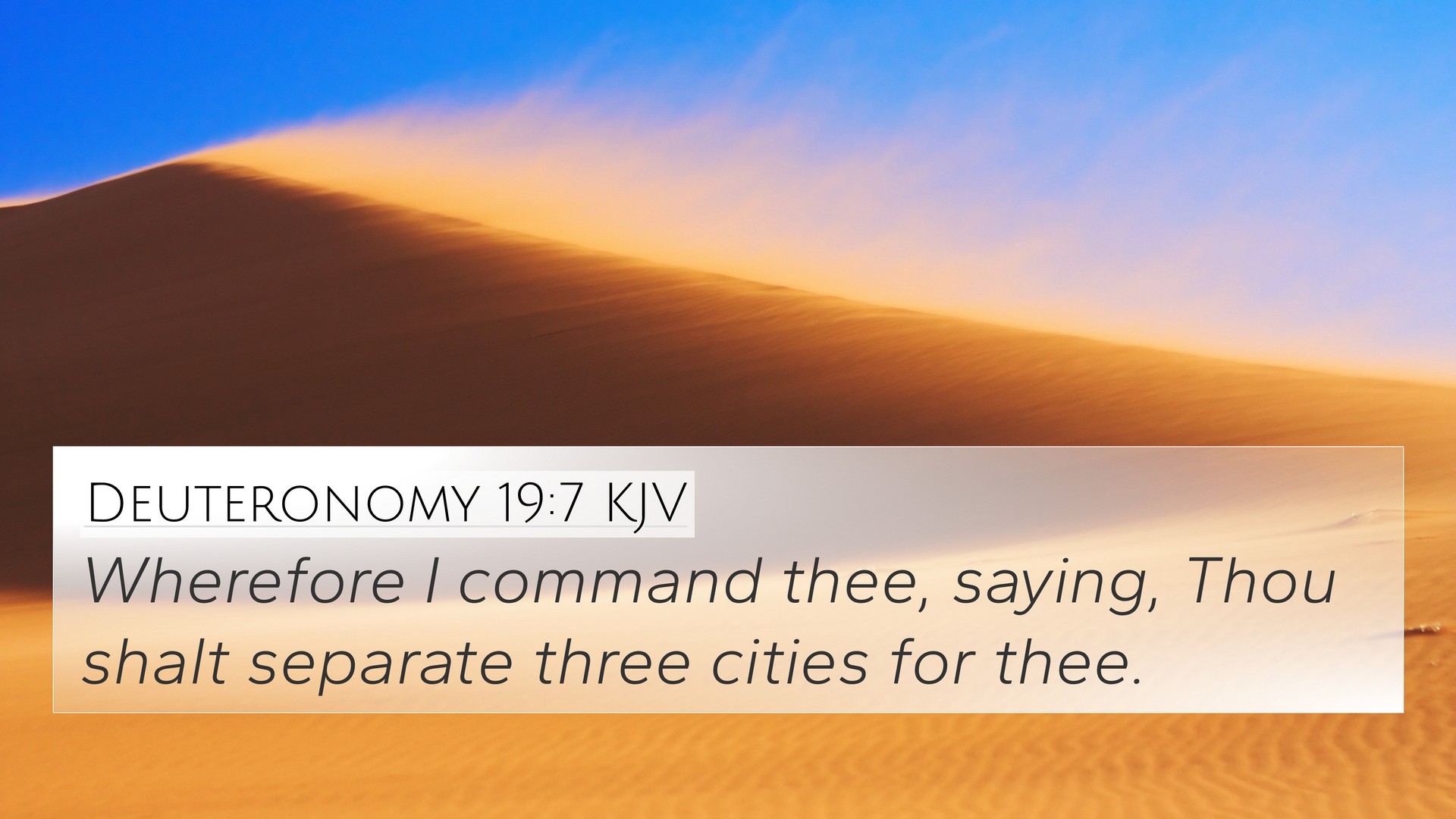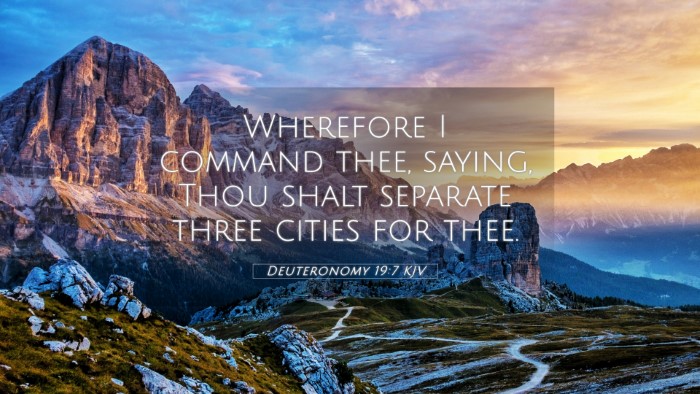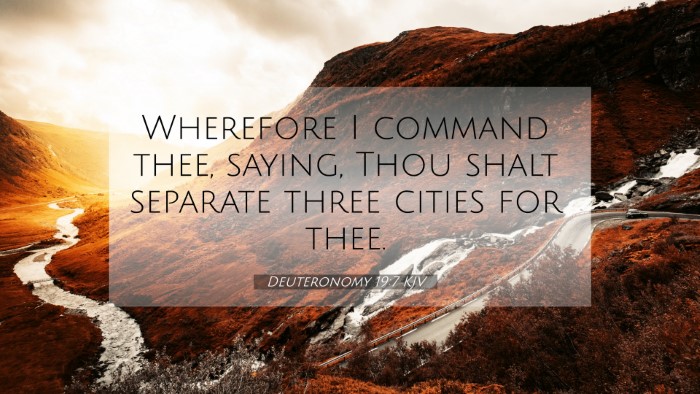Understanding Deuteronomy 19:7
Deuteronomy 19:7 states, "You shall set apart three cities for yourself in the land which the Lord your God is giving you to possess." This verse is part of a larger context concerning the provision of cities of refuge for individuals who unintentionally commit homicide. The insights drawn from prominent biblical commentaries illuminate various aspects of this scripture.
Summary of Insights from Public Domain Commentaries
Matthew Henry's Commentary
Matthew Henry elaborates that the cities of refuge were established as a merciful provision. He emphasizes God's justice and mercy, asserting that while murder is a grave sin, unintentional acts require compassion. The allocation of these cities underscores the principle that God's law is balanced with grace, providing a haven for those who have erred without malice.
Albert Barnes' Commentary
Barnes further explains that the selection of the cities was not arbitrary; they were strategically placed for accessibility. These cities symbolize not only physical safety but also spiritual refuge. Barnes points out that the law reflects God’s character—always providing a means of redemption and restoration, echoing themes found throughout scripture.
Adam Clarke's Commentary
Adam Clarke addresses the historical and societal implications of these cities, highlighting how they served to mitigate the blood feuds prevalent among ancient peoples. Clarke reveals the wisdom in establishing a legal frame that centers on the protection of the innocent while ensuring justice is served. Here we see a parallel to the New Testament's teachings on forgiveness and redemption.
Connections Between Bible Verses
Deuteronomy 19:7 has several cross-references that enrich the understanding of this message.
- Numbers 35:6 - Identifies the cities of refuge as part of the Levitical cities, confirming their purpose and significance in maintaining justice.
- Joshua 20:2 - Details the command to separate cities of refuge, showing the continuity of God's instructions to His people.
- Exodus 21:13 - Provides foundational laws regarding accidental killings and outlines protection for the unintentional offender.
- Matthew 5:21-22 - Jesus reiterates the weight of murder and the heart’s intent, which reflects the broader implications of unintentional sins.
- Romans 3:23 - Alludes to sin and reminds followers of the need for grace, paralleled in the function of the cities of refuge.
- Hebrews 6:18 - Discusses God’s promise and refuge, correlating with the notion of spiritual safety found in Christ.
- 1 John 1:9 - Emphasizes repentance and forgiveness—a theme mirrored in the legal practices surrounding accidental death and grace offered.
Thematic Bible Verse Connections
This verse connects to broader themes in Biblical scripture such as justice, mercy, and the protection of the vulnerable. Commentary insights reflect on how passages echo God's divine character:
- Justice and Mercy: God's law ensures justice while extending mercy, seen through the provision of refuge for the inadvertent criminal.
- Redemption and Safety: The cities serve as a sanctuary, parallel to the New Testament's portrayal of Jesus as our refuge.
- Community and Responsibility: The necessity of communities to have such protections engages the ethical responsibilities towards one another within society.
Cross-Referencing Biblical Texts
To fully grasp Deuteronomy 19:7, it is essential to engage in scripture cross-referencing. This approach opens the door to deeper theological insights and the interconnectedness of the Bible:
- How to find cross-references in the Bible: Utilizing resources like a concordance or a Bible cross-reference guide can aid in identifying related verses.
- Bible reference resources: Using tools for cross-referencing empowers individuals in their biblical study, fostering a richer understanding of scripture.
Conclusion
Deuteronomy 19:7 serves as a significant scripture highlighting themes of justice, mercy, and divine provision, enriched by historical insights from various commentaries. The cross-references connected to this verse facilitate a more profound understanding of its implications in both the Old and New Testaments. Engaging in such comparative Bible verse analysis brings clarity to the overarching message of God's desire for reconciliation and justice, making it vital for contemporary readers and scholars alike.


